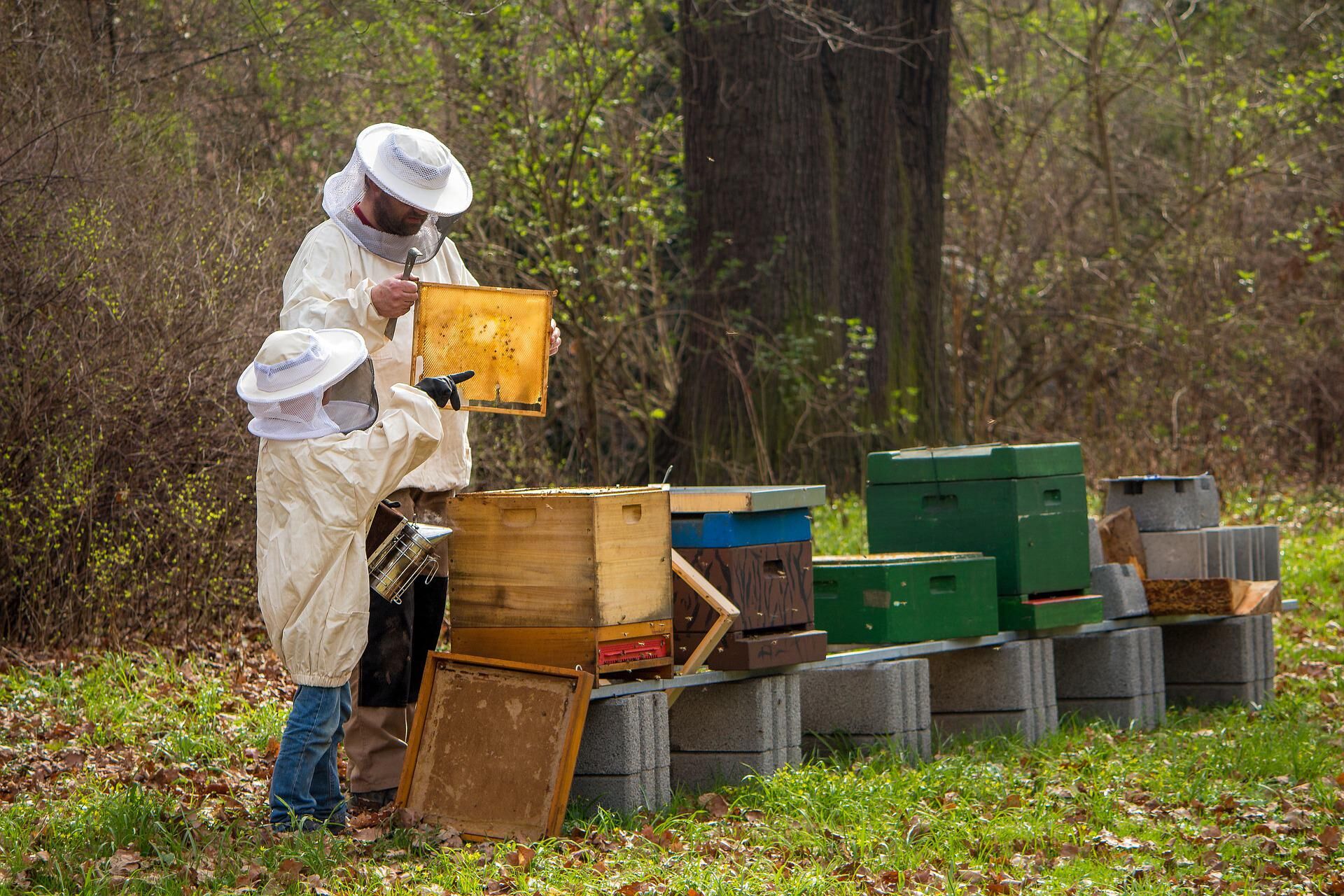Augmenting beekeeping
Development of clusters is being planned to fill the gaps in beekeeping and honey production through FPOs, which will eventually increase farmers’ incomes

World Bee Day is being celebrated on May 20. This is an apt occasion to share the success story of more than 4,000 small and marginal farmers who have taken up beekeeping through the Farmer Producer Organisation (FPO), Devbhumi Natural Products Producer Company Limited (DNPPCL). The FPO works in remote villages of the Himalayan Garhwal region of Uttarakhand. It has lent loans to its farmer members for taking up beekeeping and honey production as a source of livelihood. It has also used grant assistance for training, capacity-building and market promotion of the locally processed honey. Both the loan and grant assistance flow from the innovative joint venture of National Bank of Agriculture and Rural Development (NABARD) and Germany-based development bank Deutsche Gesellschaft.
The FPO approach in Uttarakhand has accrued several impacts towards the last mile for beekeeping and honey production. Appropriate tree species have been planted to enhance pollination. This has, in turn, strengthened the protection of biodiversity conservation for bees in districts of Chamoli, Rudraprayag, Tehri Garhwal and Uttarkashi. The project has also encouraged private entrepreneurship among youth through setting up breeding centers and carpentry for bee-box manufacturing. This has had the impact of reducing migration from the hills to the plains.
The 'Doubling Farmers Income (DFI) Report', 2018, observes that human intervention in breeding, rearing and managing bees is an agro-based activity that can be undertaken to supplement the income of farmers. Honeybee pollination is essential for crops such as mustard, sunflower, oilseeds, pulses etc. It also raises yield and increases production of cross-pollinated crops such as cabbages, cauliflower, carrots etc. Furthermore, it is an enabler for a diversified range of high-value beehive products e.g., honey, bee wax, bee pollen, propolis, royal jelly, bee venom etc. The DFI Report further adds that beekeeping has the potential to generate employment for landless farmers, hill dwellers and tribals, and that the net income from 100 bee colonies varies from Rs three lakh to Rs five lakh annually.
In 2020-21, the number of bee colonies maintained by approximately one lakh beekeepers in India was 36 lakhs with a honey production of 125 thousand metric tons. In the same year, the volume of export of honey stood at approximately 60 thousand metric tons. The exports (valued at more than Rs 700 crores) went to markets of the USA, Canada, Saudi Arabia and UAE. Interestingly, the states of Uttar Pradesh, West Bengal, Punjab and Bihar account for more than 50 per cent of the total honey production in the country. Rajasthan, Himachal Pradesh and Haryana also produce considerable quantities.
There are multiple national-level ministries and departments associated with various aspects of beekeeping, including research, development, capacity-building, standards, export and project implementation. Primarily, the National Bee Board (NBB), under the Ministry of Agriculture and Farmers Welfare, has been mandated with the role of ensuring scientific beekeeping across the country through setting up of integrated beekeeping development centers as well as training and building the capacity of beekeepers. To give further impetus to the above, a Rs 500-crore National Beekeeping and Honey Mission was announced under the 2020 Atma Nirbhar Bharat Krishi Package.
Experts point towards the following key issues to effectively promote adoption of beekeeping, especially amongst small and marginal farmers: First, on account of the country's immense biodiversity, there is tremendous potential for development of different kinds of honey specific to a particular region, and also particular crops. Hence, there is a need to support various honey hubs or clusters — apple honey (Jammu & Kashmir, Ladakh and Himachal Pradesh), litchi honey (Bihar), mustard honey (Rajasthan), coconut honey (Kerala, Karnataka and Tamil Naidu), organic honey (Andaman & Nicobar Islands and Sikkim), multi-floral honey (Maharashtra), coriander honey (Madhya Pradesh) etc. Second, an accurate digital database of registered beekeepers and their practices has to be maintained for traceability. Third, to monitor the prescribed standards, quality control facilities for honey through a network of additional regional and district-level laboratories will have to be planned and set up. Fourth, capacity-building and awareness training has to be enhanced with a sustained focus on migratory beekeeping induced by constant floral changes in agro-climatic zones. Fifth, marketing and branding of bee products has to be incentivised with focus on post-harvest management to avoid excessive stocking. And lastly, there is a need to focus on R&D for raising quality nucleus stock, disease resistance and uniformity of bee management methods in different parts of the country.
In the above context, the launch of a dedicated Central scheme for formation and promotion of 10,000 FPOs across the country by the Ministry of Agriculture & Farmers Welfare, Government of India, is extremely relevant to usher in the 'Sweet Revolution'. The scheme provides support to FPOs for up to five years in production clusters. It also supports value chain processing and export entities that are nurturing FPOs through cluster approaches. Besides, there is availability of equity grants and credit guarantee cover for accelerated flow of institutional credit to FPOs. A nationwide 'Madhukranti' portal has also been piloted which uses blockchain technology to institutionalise traceability of honey.
It has, therefore, been planned to develop 100 clusters countrywide wherein FPOs handheld by organisations such as National Agricultural Cooperative Marketing Federation (NAFED) and Tribal Cooperative Marketing Federation of India (TRIFED) will act as intermediaries to fill the gaps in the beekeeping and honey production supply chain e.g., proper storage, processing, quality control / testing and tying its funding instruments including insurance. Besides, on the lines of the recently launched 'Amul Honey', the National Dairy Development Board (NDDB) will also help the robust cooperative milk unions in branding and marketing the honey domestically, and further enhance overseas market outreach as well.
The long-term objective is to make sustainable and inclusive policy interventions that will augment the incomes of small and marginal beekeeping farmers in the country.
The writer is an Additional Secretary in the Ministry of Agriculture & Farmers Welfare, Government of India. Views expressed are personal



